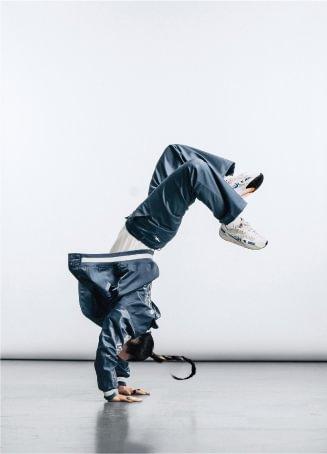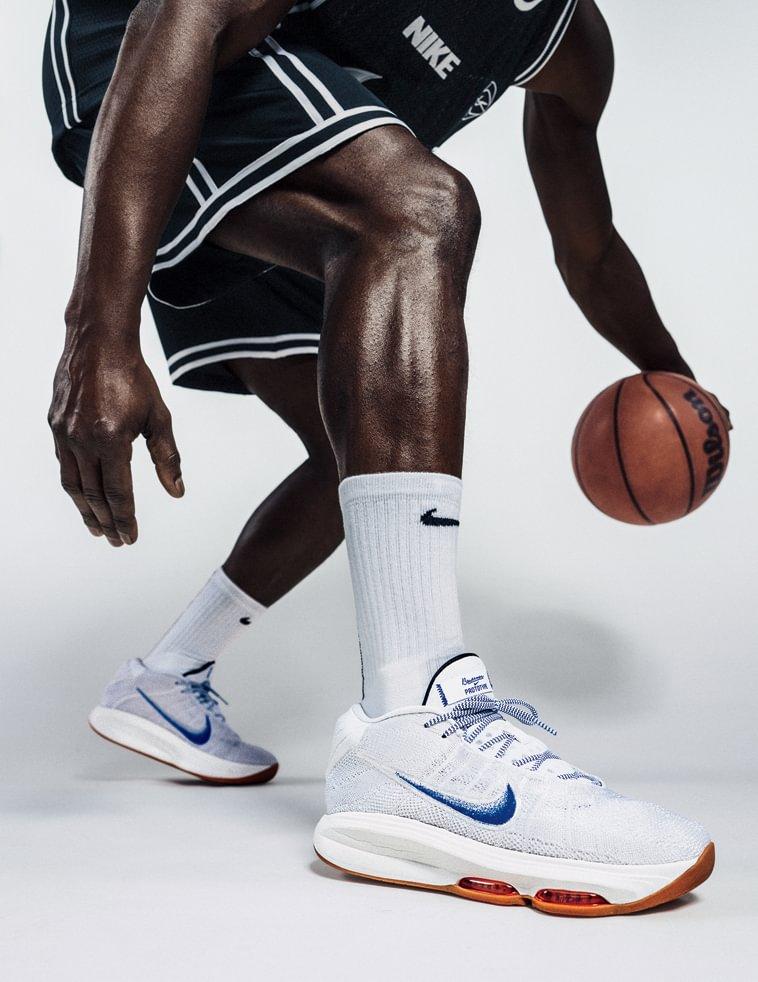










IT’S GRAY SEASON IN BEAVERTON, OREGON. WET AND DANK, JUST WARM ENOUGH NOT TO BE SNOWING, THE MOMENT IN MARCH WHEN EVERYONE WEARILY AGREES THAT WINTER IS SUPPOSED TO BE OVER. SERENA’S TENNIS COURT SITS EMPTY, SPECKLED WITH A FEW DOZEN FLUORESCENT BALLS; A “NO WALKING” SIGN WARNS PEOPLE OFF RONALDO’S SOCCER PITCH.
Heidi O’Neill, the company’s president of consumer, product, and brand, sits in front of a window, seven stories high in the Serena Williams building on Nike’s 400acre global headquarters, discussing the company’s 2024 Olympics strategy. It’s my third time visiting the campus, and she’s the only employee I’ve encountered who is bold enough to eschew the swoosh on her feet, instead opting for black platform ankle boots.
With the Paris Summer Olympics in July, Nike is preparing for its quadrennial big brand moment. It’s sponsoring hundreds of individual athletes plus the U.S. soccer, basketball, and gymnastics teams, among other sports—including, for the first time, breaking (the preferred term for breakdancing). It will use the event to showcase its shoes, alongside team kits and uniforms. To get ready, O’Neill has been figuring out how to align the company around the games. It’s a delicate moment, after all: Just three weeks before my visit, the athleticwear giant sent shockwaves through its corridors—and the markets—when it began laying off 1,500 employees, or 2% of its total staff, in an effort to trim costs.
O’Neill pulls a lightly crumpled piece of paper from her bag. “I’m about to present this to Mark, do you want to hear it?” she asks. It’s a draft of the company’s Olympic manifesto—the internal document that will guide Nike’s marketing strategy for the event and its effort to rally the team in-house. O’Neill explains that Mark Parker, who served as CEO from 2006 to 2020 and replaced founder Phil Knight as executive chairman on Nike’s board, will need to sign off.
O’Neill, a 16-year Nike veteran, was responsible for modernizing the company’s retail strategy with immersive stores. But for a moment, her confidence seems to waver. “You don’t have to say it’s good,” she tells me, before reading aloud.
“Winning is losing in the world. People have decided it’s unhealthy to be so




